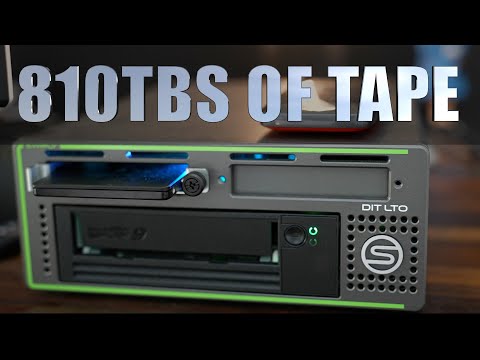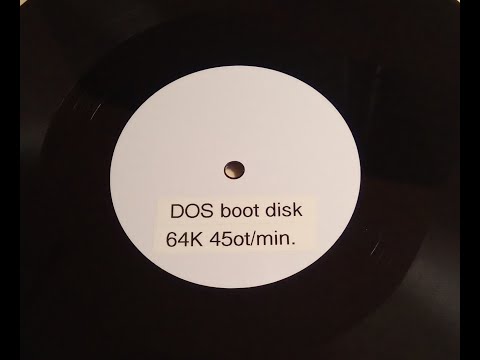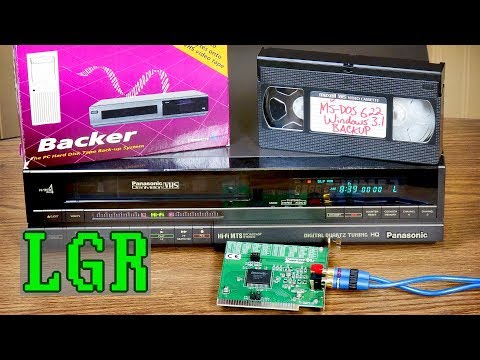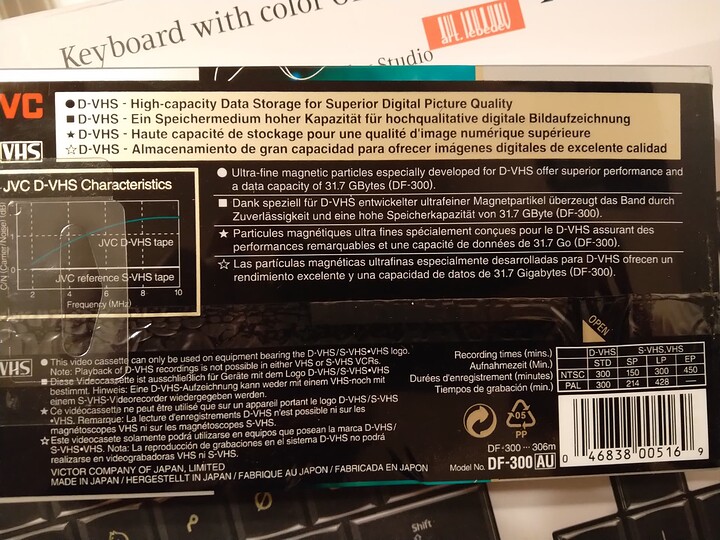I’ve heard of cassette tapes being used as storage for some of the older computer, but I’m wondering if VHS tapes can be used for computer storage as well.
In principle, yes. But there’s a reason it never took off. Linus recently did a video on D-VHS, which is exactly that: storage of digital HD video data on a VHS tape. Worth a watch on why it failed.
In theory, but VHS takes up twice as much physical space, slower, and less data can be stored on them.
Not to mention they don’t last as long as the tapes made for data storage vs videos.
And some enterprises still use tapes as long term backup today, but they have fancy auto loader systems and a real need for them.
Video from Gavin from The Slow Mo Guys uploaded a week ago about tape storage.
As others have said, in theory yes.
In practice, you could totally DIY some MicroController/FPGA thing to use VHS as a “USB-ish-device”
You will never reach this level of cool though:
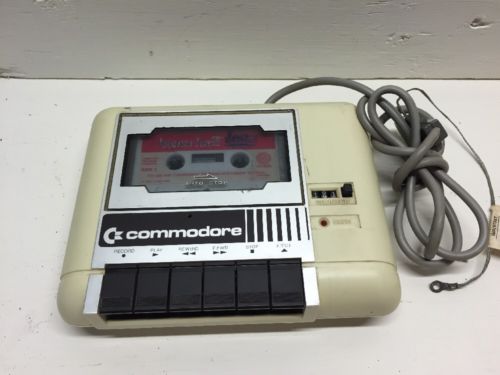
VHS or cassette tapes… it has been and will not be better than LTO.
For fun, you can experiment with some algorithm that crams as much data as possible per second onto the tape in the form of sound, but speed and capacity will be abstract numbers in 2022.
Yeah, there is a reason consumers haven’t seen this in >30 years. Even enterprise is working hard to get out of it.
Maybe a fun technical exercise if you’re into that sort of thing. Otherwise I’d run the other direction as fast as my feet will take me ![]()
there was a computer backup device in the 80s that encoded video signal on to VHS tapes (although it really just output a video signal so you could use beta or another method of recording video). I don’t think it worked well, which is why it didn’t become common.
Here you go:
VHS could have been a useful data storage medium in the days before CD-Rs got common, but today, they’re completely uncompetitive.
PCM adapters were a thing in the 80s, too.
Don’t forget that Digital VHS Cassette tapes could hold 25~50GB of digital data in the late 90s.
Tape is actually a great storage medium. Too great, in fact. The commercial world of publisher driven markets killed it off to push people towards shiny spinning plastic discs, and in the computer space, it never really took off because cold storage wasn’t much of a concern back in the day, nor was any kind of forward looking mentality to software development in general.
Nowadays, it only exists in the enterprise, because publishers don’t want consumers to have the ability to format shift large medial libraries, and escape the perpetual subscription future they have planned for us all. Also because Sony and Fujifilm keep fighting over who’s got righter rights to the rights of rightness, or some crap.
Publishers like discs because they can stamp out each copy in a fraction of a second, whereas recording onto a tape takes several minutes at least. New movie prices dropped from something like $40 to $20 with the shift from VHS to DVDs. Consumers like the lower price, better picture, random access, and extra features.
Discs don’t stop format-shifting… VCD piracy has been a very big thing for a very long time. Consumers have access to Blu-ray recorders with storage sizes 2X the capacity of any commercial discs, and for at least a decade now, the smart move has been to dump discs onto hard drives, which is far faster and easier to do with discs than it would be with tape. It’s only the DRM on DVD and Blu-rays that may make format shifting difficult, but digital tape can have DRM as well.
of course it was LGR
in theory yes this would work. in practice an absolutely terrible idea.
step 1. get a new sony long life cassete.
2 plug it into your video and record your data via a y sync or similar analog output.
3 play the tape back 2-3 times
4 throw the tape away because its crimped and stretched to the point data is corrupted.
sadly vhs was a poor design for storage. the way it feeds tape over the heads leads to stretching due to the way the rollers limit the speed of the tape and its tightness in the loop.
pretty much as soon as you start playing it, the tape degraded even in high end vcr’s.
for video you could watch till the tape wound round the head and jammed the machine up.
but with data, if one part of the tape is slightly stretched, the data on it will play at a different speeds resulting in bad read/write.
with the end result of 1 slight crimp and your back to trying to load again…
oh and on load times ![]() … it took 10-15 mins to load a 64kb game back in the day off tape.
… it took 10-15 mins to load a 64kb game back in the day off tape.
… you need 13-23gigs of data for windows… so you would likely be punching retirement before the win logo shows ![]()
Cassette tapes had some issues with the magnetic media quality and head compatibility through the years; basically it came down to the good quality MP cassette tapes needing a deck with heads that could produce stronger H fields than previous designs to magnetize the more coercive media. If you had a good deck and MP cassettes they were very impressive with their life.
VHS use life was pretty good too, better than even the most modern LTO-9 tapes (this is sort of a technicality though because LTO has some inherent disadvantages in use life to increase it’s data density) at significantly over 100 cycles.
Does anyone remember those insane dedicated VHS rewinders that use to be so prevalent? They had crazy fast motors in them that would spin the tape way to fast and then slam into the end of the tape reel.
This topic was automatically closed 273 days after the last reply. New replies are no longer allowed.
